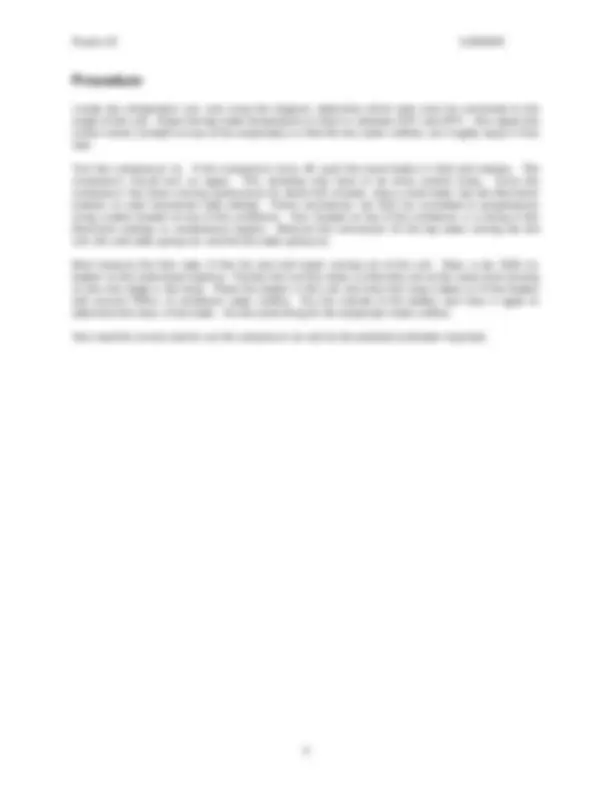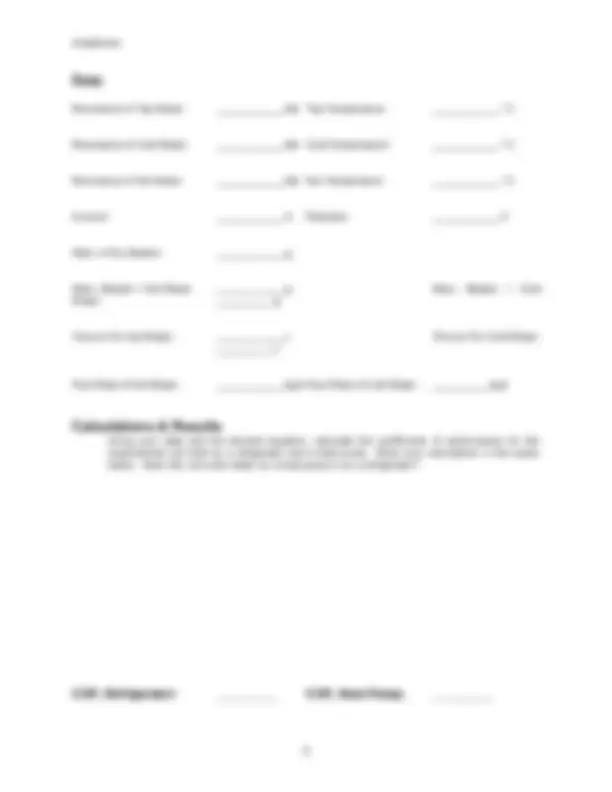




Study with the several resources on Docsity

Earn points by helping other students or get them with a premium plan


Prepare for your exams
Study with the several resources on Docsity

Earn points to download
Earn points by helping other students or get them with a premium plan
Community
Ask the community for help and clear up your study doubts
Discover the best universities in your country according to Docsity users
Free resources
Download our free guides on studying techniques, anxiety management strategies, and thesis advice from Docsity tutors
Material Type: Lab; Class: Principles: Heat/Waves/Mod Phy; Subject: Physics; University: Sierra College; Term: Summer 2009;
Typology: Lab Reports
1 / 4

This page cannot be seen from the preview
Don't miss anything!



Physics 4C 11/30/
In this experiment, you will have the opportunity to work with an actual refrigeration system that was specifically designed for your inspection and experimental operation. You will learn how this system works as well as experimentally determine whether it could function better as a refrigerator or a heat pump. As a result of this exercise, you will also learn how to measure the COP. Theory
http://www.chemistry.wustl.edu/~courses/genchem/Tutorials/Fridge/refrigeration.htm http://www.answers.com/topic/refrigeration http://www.energyquest.ca.gov/how_it_works/refrigerator.html http://home.howstuffworks.com/refrigerator4.htm http://web.me.unr.edu/me372/Spring2001/Refrigeration%20Cycles.pdf http://highered.mcgraw-hill.com/sites/dl/free/0072383321/22365/study_guide_ch10.pdf Evaporator Discharge Intake Valve Valve Warm Water Tap Water Condenser Compressor Expansion Valve Higher Temp, Low Pressure, Vapor Low Pressure, Very Low Temp, Vapor Low Pressure, Room Temp, Liquid Freon Vapor Freon Vapor High Temp and Pressure Cold Water Experiment
dcalabrese 1 Theory
dcalabrese 1 Data Resistance of Tap Water: ____________ k Tap Temperature: ____________ o^ C Resistance of Cold Water: ____________ k Cold Temperature: ____________ o^ C Resistance of Hot Water: ____________ k Hot Temperature: ____________ o^ C Current: ____________ A Potential: ____________ V Mass of Dry Beaker: ____________ g Mass, Beaker + Hot Water: ____________ g Mass, Beaker + Cold Water: __________ g Time to Fill, Hot Water: ____________ s Time to Fill, Cold Water: __________ s Flow Rate of Hot Water: ____________ kg/s Flow Rate of Cold Water: __________ kg/s Calculations & Results Using your data and the derived equation, calculate the coefficients of performance for the experimental unit both as a refrigerator and a heat pump. Show your calculations in the space below. Does this unit work better as a heat pump or as a refrigerator?